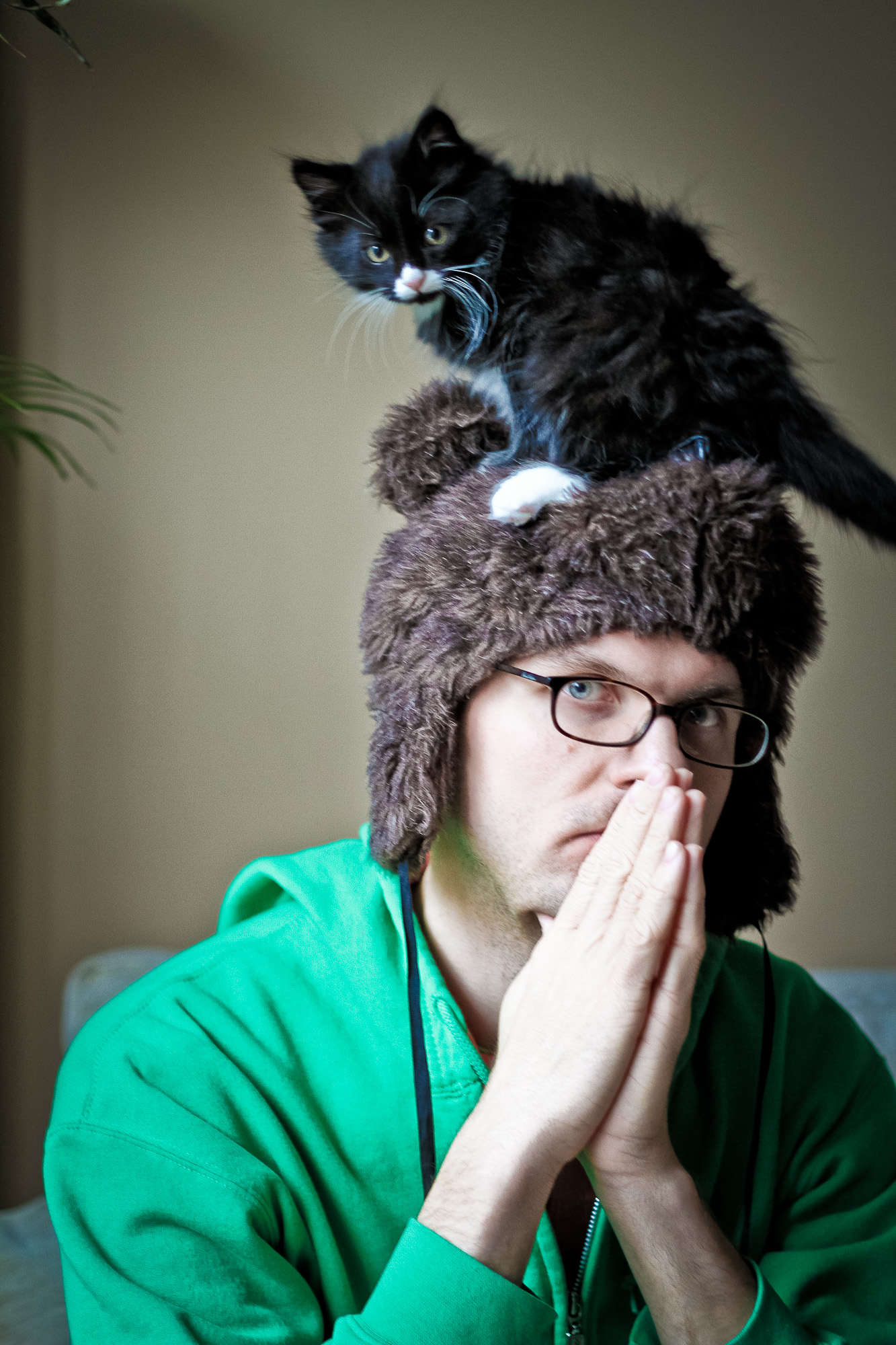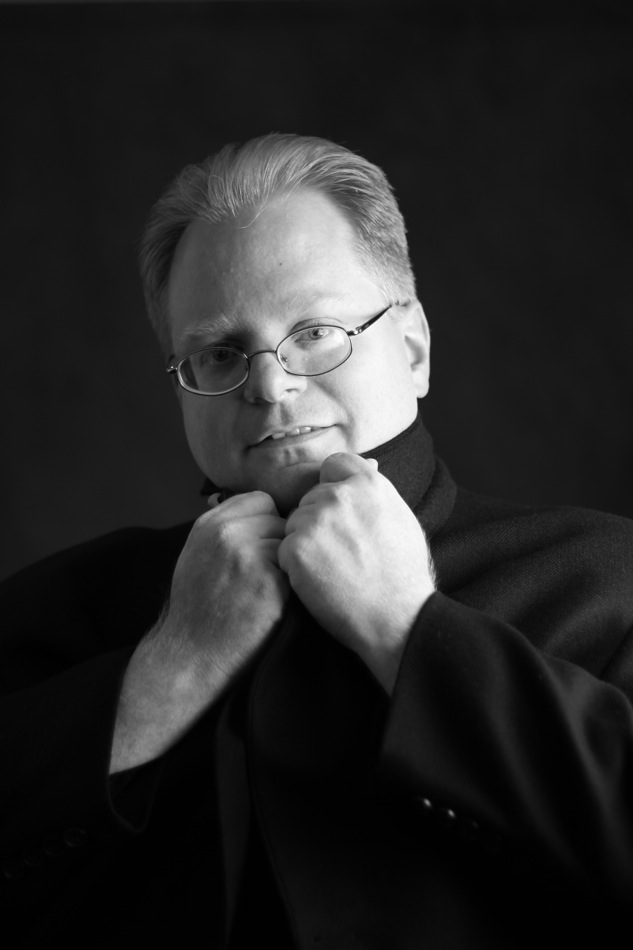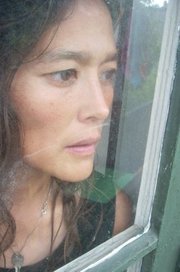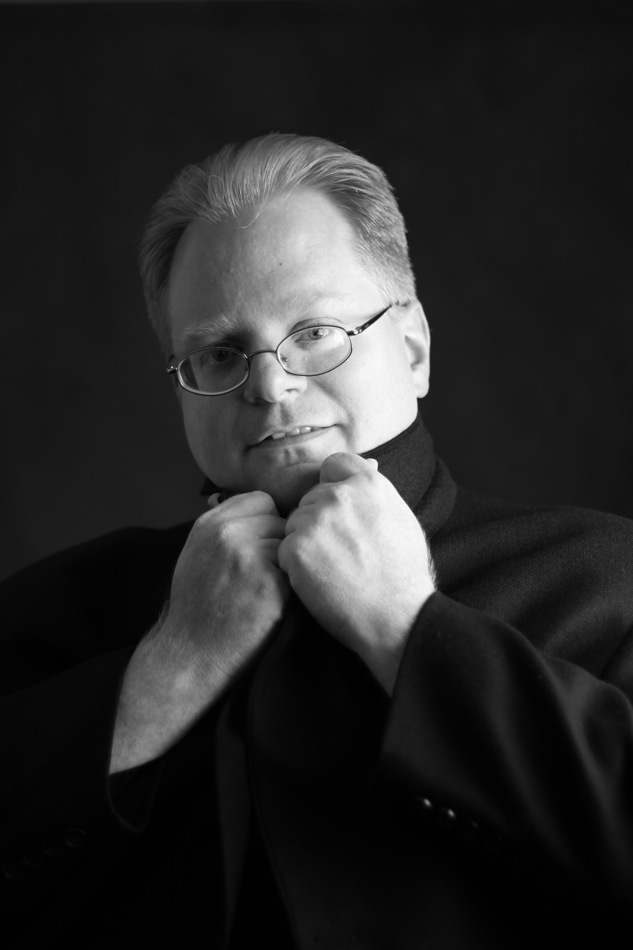May 2
Think back to yourself ten years ago—where you lived, what your preoccupations were, who your relationships were with, who you were. Write a letter in the form of a poem to yourself then from yourself now.
Jump to navigation Skip to content
Think back to yourself ten years ago—where you lived, what your preoccupations were, who your relationships were with, who you were. Write a letter in the form of a poem to yourself then from yourself now.
 P&W-SPONSORED WRITER & PRESENTER: Robbie Q. Telfer
P&W-SPONSORED WRITER & PRESENTER: Robbie Q. Telfer
We asked Robbie Q. Telfer to update us about his work with teens at Young Chicago Authors, which has been funded through the Readings/Workshops program at Poets & Writers, Inc., since 2000.
I’m the director of performing arts for Young Chicago Authors, which runs creative writing programming year-round for high school-aged students in the Chicagoland area. One of the most exciting programs I get to be a part of is the Louder Than A Bomb Teen Poetry Festival. This three-week festival is the largest youth poetry festival in the world, with over fifty individual events, directly engaging over six hundred young people, and featuring seventy-two teams of poets from different high schools and community organizations.
The reason it’s so exciting to work on this festival is that it feels like we are tapping into an energy that is greater than just the once-a-year event we stage. For our young people, the poetry is a ticket to an ever-growing and loving community that is interested in celebrating difference, seeking commonality, striving toward justice, and honoring conflict. I have constantly found that there are always more youth capable of benefiting from our programs than we have financial, logistical, and temporal resources to serve, which can be one of those good problems I keep hearing about.
So right now, we’re a festival that happens once a year, but I am envisioning for us (with some more support and infrastructure) a “regular season” of poetic workshops, competitions, and performances, where our festival is the championship at the end (not unlike this “March Madness” thing the kids are into these days).
Also this year, thanks in part to the great promotions we’ve received nationally due to the documentary made about our youth slam, we are beginning to work with other cities around the country to create their own Louder Than A Bomb poetry slams. It would be wonderful if we could replicate our model of youth empowerment through poetry in enough cities so that we could have a national LTAB championship festival where the winners of each city come together for even more workshops, performances, and competitions. Then, of course, the world!
Big, unwieldy plans aside, what’s most rewarding about the work we do is quite simply watching the young people turn into who they are to become. I know that we are not the only influence on their lives, but we can be a big one, and any help we lend our students in tackling whatever problems they encounter is far more rewarding than media and political attention. If we ever lose sight of the actual youth in all our big schemes, then we’ll have failed them as just another American reality show dreamchaser. We’ll be like that guy who told everyone his kid was in that homemade dirigible just to get on TV. No one should ever want to be that guy. For recordings of Louder Than A Bomb poetry going back to 2005, please visit our WBEZ, our media sponsor and presenting partner.
Support for Readings/Workshops events in Chicago is provided by an endowment established with generous contributions from the Poets & Writers Board of Directors and others. Additional support comes from the Friends of Poets & Writers.
In a Paris Review interview, fiction writer Amy Hempel talks about a workshop she took with legendary editor Gordon Lish in which he assigned the class to "write our worst secret, the thing we would never live down, the thing that, as Gordon put it, 'dismantles your own sense of yourself.'" From this came her story, "In the Cemetery Where Al Jolson Is Buried." Follow Lish's assignment. Write a story about your worst secret.
 P&W-SPONSORED PRESENTER: Collin Kelley
P&W-SPONSORED PRESENTER: Collin Kelley
Poet Collin Kelley, author of After the Poison, Slow to Burn, and Better to Travel, and curator of the Poetry Atlanta reading series, blogs about his experience as a longtime R/W-sponsored presenter of literary events.
I’ve had the honor of organizing and co-hosting the annual Voices Carry reading in Atlanta for the past seven years. The reading began at the request of my friend, the late Chante Whitley-Head, in 2004 as part of the Atlanta Festival of the Book. Nearly two hundred people crowded into the rotunda of the Jimmy Carter Library to hear Cherryl Floyd-Miller, M. Ayodele Heath, Alice Lovelace, Tania Rochelle, Ralph Tejeda-Wilson, Kodac Harrison, the late John Stone, and my partner in crime, Cecilia Woloch.
There was an electricity in the room that September night; one of those readings where every poet is performing their best work, the audience is enrapt awaiting the next line, and there are murmurs and gasps when a poet has found just the right combination of words to elicit uncontained emotion. Those transcendent kinds of readings are rare.
Voices Carry was supposed to be a one-off event. There was no money to keep it going, Cecilia was moving back to Los Angeles, and Chante was stepping away from the festival after being diagnosed with cancer. But everywhere I went for months afterwards, people kept asking when the next Voices Carry reading was going to be held. Even from LA, Cecilia was game to put together another reading and to fly back to Atlanta to assist and read.
Poetry Atlanta saved Voices Carry. A twenty-five-year-old nonprofit organization, Poetry Atlanta’s mission is to promote the local poetry scene as well as produce the award-winning Atlanta Review. I was asked to sit on Poetry Atlanta’s advisory board and suggest projects. The first project I brought to the table was Voices Carry. There was a little money in the coffers, but where would the rest come from? Enter Poets & Writers’ Readings/Workshops program.
We were able pay honoraria to poets (who included Jon Goode, Dan Veach, Beth Gylys, Eric Nelson and Sharan Strange), which freed up funds for us to rent the Carter Center space again! The 2005 reading was held on September 11th and it was a double whammy of remembering the terrorist attacks and the still unfolding horror of Hurricane Katrina’s wrath on the Gulf Coast. It was an emotional evening.
Cecilia and I are already talking about the 2011 edition of Voices Carry. My applications will be in the mail to P&W soon. And, as always, we’ll remember our friend Chante, who put us on this road in the first place.
Support for Readings/Workshops events in Atlanta is provided by an endowment established with generous contributions from Poets & Writers Board of Directors and others. Additional support comes from the Friends of Poets & Writers.
Write a prose poem, a poem that doesn't use line breaks to convey its meaning. Read [the siren's story] by Barbara Jane Reyes for an example.
New Hampshire outfit Bauhan Publishing has launched a first book prize in honor of the late May Sarton. The winning poetry collection will be published in 2012 in celebration of Sarton's one hundredth birthday, and will appear in conjunction with a reissue of her collection As Does New Hampshire, originally published in by Bauhan 1967.
State poet laureate W. E. Butts, author of Sunday Evening at the Stardust Café (First World Library) and Movies in a Small Town (Mellen Poetry Press), will judge. The winner will receive one thousand dollars as well as one hundred copies of the published book.
Book manuscripts, which should be accompanied by a twenty-five-dollar entry fee, are due on June 30. Full guidelines are available on the Bauhan Web site.
A feminist, advocate for social justice, and contemporary of writers such as Virginia Woolf and H. D. (Hilda Doolittle), Sarton authored more than fifty books of poetry, fiction, and memoir. In the video below, Sarton reads her poem "My Sisters, O My Sisters."
Eavesdrop on two people having a conversation in a public place. (Avoid small-talk, conversations about the weather.) Write down exactly what they say, including their "ums," "uhs," "likes," and stutters for two pages. Then rewrite that page, using only dialogue, but making it more suited for the literary page; clean it up, keeping the sentiments, but getting rid of all the inconsequential words and lines, and even changing the language to make it more engrossing. (Try to find the subtext behind what they’re saying and what you observed about them while listening.) Compare the original and the revised dialogue. The revision will still be boring, as most people’s conversations are, but the point is to see how fictional dialogue is not the same as spoken dialogue.
This week's fiction prompt comes from fiction writer Teddy Wayne, author of the novel Kapitoil (Harper Perennial, 2010).
The Pulitzer Prizes in letters have been announced, with two women writers snagging literary honors. U.S. poet laureate Kay Ryan, praised for her "witty, rebellious and yet tender" verse, won for her collection The Best of It: New and Selected Poems (Grove Press). The winner in fiction, Jennifer Egan was honored for the "big-hearted curiosity" of her novel A Visit From the Goon Squad (Knopf), which also recently won the National Book Critics Circle Award.
The finalists in poetry are Maurice Manning for The Common Man (Houghton Mifflin Harcourt) and Jean Valentine for Break the Glass (Copper Canyon Press). Jonathan Dee and Chang-rae Lee received citations in fiction, for The Privileges (Random House) and The Surrendered (Riverhead Books), respectively.
Also of note, writer and doctor Siddhartha Mukherjee won the Pulitzer Prize in general nonfiction for his "biography" of cancer, The Emperor of All Maladies (Scribner), "an attempt to enter the mind of this immortal illness, to understand its personality, to demystify its behavior."
In the video below, Egan discusses her novel on PBS NewsHour.
P&W-SPONSORED WRITER: Delia Tomino Nakayama
HOST ORGANIZATION: St. Anna's Episcopal Church
From October 18 to November 15, 2010, poet Delia Tomino Nakayama held five free "PoetryProcess" workshops at St. Anna's Episcopal Church in New Orleans. We asked Nakayama how she approaches workshopping.
 What's your writing critique philosophy?
What's your writing critique philosophy?
A lot of good comes from refraining from giving critique in workshops if the students are open to such an idea. An air of unconditionality then permeates the environment, and people can really go places they don't normally go and explore different ways of writing without feeling scrutinized. “Good” examples, writing exercises, and time spent writing together in silence can guide people in a gentle way to reach their potential. I also feel that the answers people are looking for regarding their work are usually inside of them, though it might take some time to find. Those answers are apt to be more appropriate than another person's, as the writer really knows the writing.
What is the strangest question you’ve received from a student?
“Do I really belong here?”
My answer was: “Of course!”
This person didn't really feel like a “writer” yet. Anyone who wants to write, whether they have or not in the past, “belongs” in any workshop I give.
How does teaching inform your writing and vice versa?
The knowledge I have as a writer and human being comes out as I teach, and though I knew that I “knew” something, my insights go through an actualization process where I am verbalizing what I know viscerally/subconsciously.
I think about how it was when I was starting out as a poet and writer, and how I doubted myself. I also remember getting bad and discouraging critiques. That process of development as a writer informs how I teach. I try to be as sensitive as possible to each student and give people a lot of space to move in, so they don't feel monitored or limited. I also do a lot of encouraging and praising. I don't say something is great if it isn't great (to me) or butter people up gratuitously, but I always aim to be positive and supportive. Praise and encouragement works.
I have had the great luck to teach some very talented writers who I have thought of as “better” poets than myself (though I don't really like to use that word and compare in that way), and those people have inspired me and challenged me to write more and “better.”
What has been your most rewarding experience as a writing teacher?
Teaching children and young adults poetry is the most satisfying for me. Giving a child a notebook and a pen, and letting him or her just write is amazing. It's like watching a flower bloom before your eyes.
What are the benefits of writing workshops for special groups, such as teens, elders, the disabled, and veterans?
For groups of people that don't feel heard, or feel misunderstood, writing is a powerful tool to get clear on how they feel and see things, express those feelings effectively, and find an outlet where they can communicate and tell their stories to others in an interesting, engaging way. Writing empowers people and gives voice to stories, and perhaps even secrets, that need to be brought to light.
Support for Readings/Workshops events in New Orleans is provided by an endowment established with generous contributions from the Poets & Writers Board of Directors and others. Additional support comes from the Friends of Poets & Writers.
 P&W-SPONSORED WRITER & PRESENTER: Collin Kelley
P&W-SPONSORED WRITER & PRESENTER: Collin Kelley
For the next few weeks, poet Collin Kelley, author of After the Poison, Slow to Burn, and Better to Travel, and curator of both the Poetry Atlanta reading series and the Georgia Center for the Book reading series will be blogging about his experience as a longtime R/W-sponsored writer and presenter of literary events.
In February 2005, I wrote my first grant approved by Poets & Writers, Inc., when it expanded its Readings/Workshops program to the Atlanta area. The recipient of that grant, Cherryl Floyd-Miller, hadn’t asked for any money, but deserved it for her many years of selfless and uncompensated work as a writer in the city. We had a standing-room-only audience that night at the Barnes & Noble on the Georgia Tech campus, and I was thrilled to be able to put a check in Cherryl’s hand.
Asking a writer to pay airfare, hotel (or sleep on an uncomfortable sofa), and other expenses with no compensation other than the “glory” and “honor” of being asked to read becomes more and more abhorrent to me the longer I’m in the business of words. Even if the writer is just coming from across town, they are giving up their time, paying $3-plus for gas and providing experiences for audiences.
Whether the poet is coming from Boston or Los Angeles (such was the case with January Gill O’Neil and Steven Reigns, respectively) or just around the corner (the newly-crowned Women of the World Poetry Slam champion Theresa Davis or local favorite Karen Head), my belief is that they all deserve to be paid.
Let’s face it: Unless some book-loving heiress has died and bequeathed her fortune, most literary organizations are struggling. And not just because of the recent economic downturn, but since time began. It’s not that people don’t value literature; it’s just often taken for granted as always being there. Writers are usually left in the gray area of trying to balance doing what they love and keeping the lights on in their dens.
Support for Readings/Workshops events in Atlanta is provided by an endowment established with generous contributions from Poets & Writers Board of Directors and others. Additional support comes from the Friends of Poets & Writers.